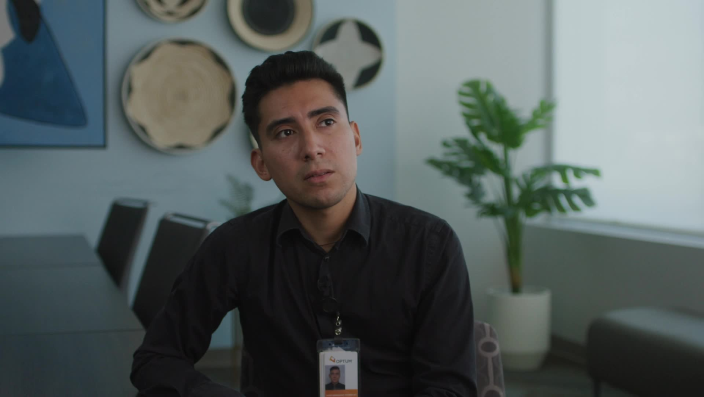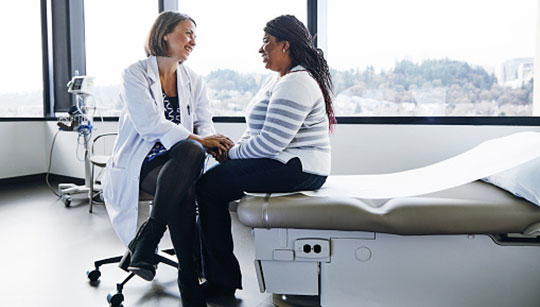Narrator:
To be in LA is to be embraced by diversity. People you meet come from 140 countries. They speak 224 languages. Optum is working to fit health care to each one.
Dr. Jaime Ramos:
It's delivered better if it can be done in a language that they understand, in a context that takes in account where they live, the culture that they tend to ascribe to.
Narrator:
By giving everyone the chance to live their healthiest life, we’re elevating patient experience.
Ramos:
Their experience at a visit with a clinician starts at where they parked their car and ends when they leave. It starts with just general communication of the building itself.
Dr. Leslie May Ramirez:
Optum engages them by the moment they walk through the door. They will not have to speak a word of English or attempt to speak a word of English.
Narrator:
There are so many signs of welcome.
Dr Kate Shieh-Maynard:
Having a physician or a clinician who actually speaks your native tongue is so important, because there are so many nuances to language that you miss with translation.
Ramirez:
Not just the doctors themselves, but the ancillary staff here are really helpful in providing that care and feeling that ease right away.
Ramos:
You receive patients who have had a history of experiences. When you engage them, especially when it's a language interaction, they feel like that, "Hey, finally. Finally, someone is listening to me."
Narrator:
We’re not just listening. We’re hearing.
Shieh:
And also understanding the cultural background of the patient, that's important too.
Narrator:
At Optum Health Equity is purposeful.
Shieh:
I always try to stress the importance of finding a candidate or a physician from backgrounds similar to the community they will serve, just because that will start them out on the right foot with the same cultural background and understanding.
Ramos:
A lot of our providers here in Optum who choose to work in these spaces have that strong mission, desire to help people.
Ramos:
I have gone far and wide to search for these culturally competent clinicians I'm looking for. And the farthest I've gone was through a program that was sponsored by Optum to go to other locations. In this case was in Puerto Rico. It shows what level Optum is willing to commit to find clinicians.
Narrator:
It’s not just who we are. It’s where we are.
Ramirez:
Being here in a downtown, we're right here, and we're like a one stop shop. Here, they get their labs done right in the same room. Here, they can go downstairs, schedule their screening mammogram and kind of get the things that they need.
Shieh:
Some patients cannot afford all the medicines they may need, and we try to help them with that.
Ramirez:
We try to offer transport or find out if their insurance can help us with transport.
Shieh:
Social programs, that's something that our group offers, but sometimes patients are unaware of it or sometimes they're not trusting of it. So I think that's when it's my responsibility to really explain. And, to really build that trust and bridge that trust from our own relationship. So they’re not missing out compared to other patients who are open to that type of service.
Ramos:
Food insecurity, health, literacy, these are things that are unique to us here yet. We still have providers who are willing to do that to meet that challenge, but also deliver solid care.
Narrator
Our patients are seeing a difference.
Ramos
We survey them and after their visits; a constant theme that comes up was that my doctor listens to me. My doctor understands me. My doctor cares about me. And when you hear those encounters and they're done in Spanish or in the language that they're comfortable with – Korean, Mandarin-speaking, Tagalog, those themes come through. And that also means that we truly hit the right mark.
Shieh:
I want to make sure that every single patient that comes to see me feels like the most important patient at that moment, the most important person at that moment, and that's what all our doctors try to provide.
Ramos:
I think Optum has made it possible by just being here, by just showing up and making a commitment where other places have historically ignored.






